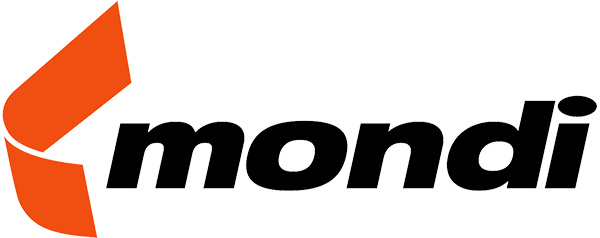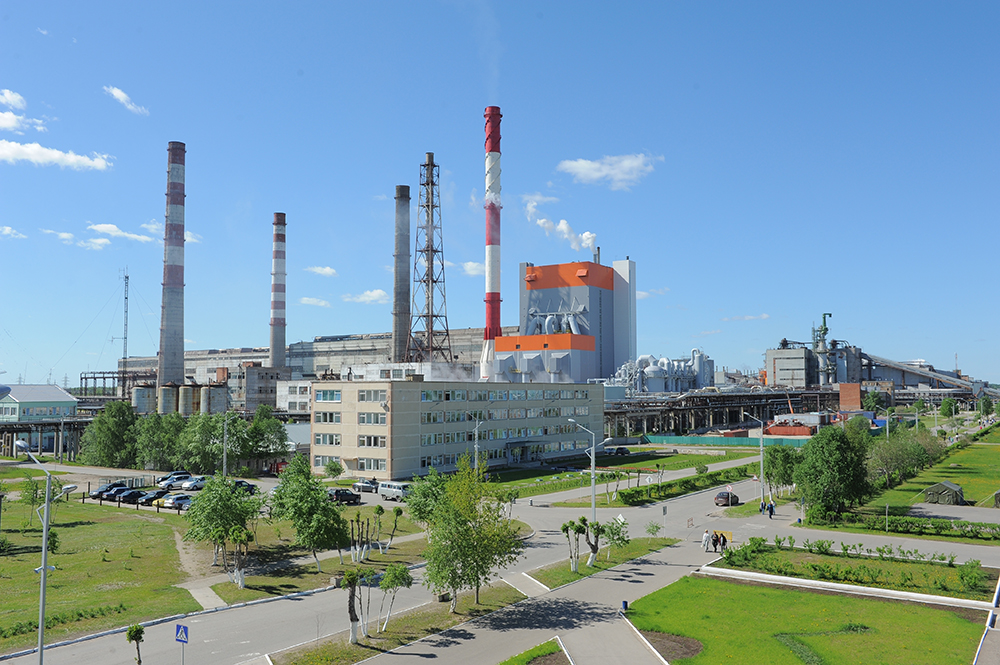Since 2010, more than 800 First Line Managers completed the three-module Mondi First Line Manager Program. From participants to the managing board, the program has a very high standing and contributes to the success of Mondi. On this occasion, we invited Birgit Höttl, HR manager and project leader of the FLM program at Mondi, to an interview talking about her experience, tips and learnings for international leadership development.
From business need to leadership development
The Mondi First Line Manager Program is running since 2010 – What was the cause back then?
Birgit Höttl: Our employees’ security is one of Mondi’s highest priorities. Talking with the business, some years ago we realized that the standards in some of our factories might be raised and that we have need for action. Based on an internal survey we evaluated how many leaders at first level we have – this means First Line Managers like shift supervisors, chiefs of maintenance, chiefs of logistics – and what their daily work topics are. In this survey we learned very soon that it’s not about safety but about leadership. An example: Often shift workers doing really well get promoted. Suddenly they are leaders without having the appropriate tools or strategies. That means after having worked side by side with their colleagues for years they are their bosses all at once. So this step from colleague to leader was an essential topic.
Not very surprisingly, communication was another topic. In our context it was, for example, the possibilities of shift supervisors to effectively communicate that security rules have to be tightly hold in the factories or that helmets have to be worn at any time. Related was how to cope with potential resistance of the colleagues and now employees.
Based on all this information we – which is the The Mondi Academy – formed the First Line Manager Program together with MDI and the Mondi business department.
FLM Hard Facts
Start of the program
Number of countries
Number of trained managers
Training languages

Number of modules
Trainers worldwide
Tailor-made programs are the way to go
When the FLM program started, the Mondi Academy already existed for a time. What did this new program mean for the Academy?
The First Line Manager Program was the start for the trend to more and more tailor-made training programs for different target groups. The First Line Manager Program was designed to exactly meet the First Line Managers’ needs and working challenges. We even had a reality check in one of our factories in Zeltweg. MDI trainer Masha Ibeschitz went there, talked with the shift workers and supervisors as well with the production managers and many more to carve out the core issues on the shopfloor. Out of that and many other components the First Line Manager Program was created and many tailor-made programs within the Academy followed. The Mondi Academy now offers particular programs for sales managers and employees, for purchasing managers, finance managers and many more. The most recent program which started was our Customer Service Academy for our sales administration.
How did the FLM program concern Mondi employees? How do they accept the tailor-made approach?
Really well! On all organisational levels the FLM program is regarded as one of the most successful training programs of the Academy. As a result, the formerly optional program is now obligatory. That means that any First Line Manager within Mondi visits the training. Since 2010 this have been more than 800 First Line Manager in 12 different languages. That shows also the dynamic the program has by now. It happens that First Line Managers which normally get nominated from their line managers nearly claim to be part of one of the next trainings. Time and again I receive requests from potential participants from the different countries asking for the next dates in order to apply in time.
When it comes to concept and design of such a specific and yet internationally suitable program: Which Mondi stakeholders are involved?
The main target group are our managing directors deciding which First Line Managers from their factories will visit the training. It’s also the HR managers in the factories. And at the beginning of the program it have been leaders from the business segments and safety coordinators who had a lot to do with the design of the program. And, of course, the members of the board are another really important target group encouraging the project in a very active way.
Application on-the-job & contents
Let’s talk about application on-the-job: How engaged and motivated are the FLMs? How does the application work?
You always find situations in which you see that learned behaviour really gets applied. A small but very concrete example: Shortly after participating at the program a First Line Manager gave a very clear and direct order to his employee. Thereupon, his line manager complimented him and told him that he positively noticed his clear order. The First Line Manager said: “That’s what I learned in the First Line Manager Program”. And the line manager answered: “And giving you feedback on that is what I learned in the leadership program for production managers”. **laughs**
Of course that’s an extraordinary example. But the fact that the program is requested from the target group itself shows me that they do not only accept it but also gain benefit for their daily work.

Mondi Factory in Syktyvkar, Copyright: Mondi
A word about the contents: What are the highlights of the program?
Basically, the trainings take place in our factories. In the second of third modules it does not only take place in the classroom but does also have a practical part where the group visits the factory. The factory is informed and prepared and therefore participants meet different safety errors they have to recognise and to bring up. This way any participant can try and practice how to give feedback and how to apply the communication tools learned during the training. Safety is the central theme of the whole program – but in this second module we really focus on it and on how to talk about as a leader in a really good and effective way. Usually this even gets filmed and reviewed afterwards and is for sure one of the content highlights.
In addition to the FLM program there is also a follow-up program, right?
Yes, that’s right. The program started in 2010 and was extended with the First Line Manager Refresher in 2013. That’s a program graduates should visit within one to three years after the FLM program. It’s a two-day-workshop focussing on sharing experience with the other participants, sharing what worked out well, what everybody was able to apply. They talk about their success stories as well as about consistent or new challenges and have the chance to go deeper.
Tailor-made, flexible and interactive – Tips of success for international leadership programs
Now, after more than 800 First Line Managers completed the program: What are your tips for successful international roll-outs of leadership programs? What would you advise HR colleagues planning something similar?
One tip is to create 70% standard content for a program in order to make sure that several messages and training contents reach all participants worldwide – that’s what we did with the First Line Manager Program. Our standard contents are Situational Leadership and the feedback rules, for example. The other 30% shall be flexibility to be able to consider national and cultural differences. The combination of a base of fixed content and the freedom to respond to differences is, according to my opinion, a big factor of success for international programs. A feedback exercise in Italy will be different from one in Sweden and this is reflected by the flexible structure following the “Think globally, act locally” principle.
Furthermore it is important to really meet the target group with the design of the measure. In our case that was guaranteed with factory visits, conversations with the First Line Mangers themselves as well as with their employees.
Basically it is important that a training is hands-on and interactive. Depending on the target group this might be more or less important – with our First Line Managers it was mission critical. The First Line Managers are at the shopfloor, they work with their hands. If you go and present them scientifically prepared concepts in a nice power point presentation that’s the wrong way for sure. But if you respond to their daily work and design the training accordingly, which means short theoretic learning units combined with many exercises, you happen to receive a feedback in the pilot program saying “I’m surprised how quickly the time passed!”.
Highlights & perspective
What was your personal highlight with the program in the past years?
At Mondi we have an internal award for the most innovative projects, the Mondi Diamond. Once in three years employees can apply with their projects. In 2012 about 300 projects have been submitted. Passing several levels 12 finalists have been chosen. Those projects were presented in the context of the Leadership Forum in South Africa and “contended” for the first place. I was amongst the twelve projects with the First Line Manager Program. At the end the project won the second place in the category “People Development”, another project won the first place, but the recognition and the possibility to present the program at the Leadership Forum – an event where about 120 Mondi top managers meet – gave the program a big momentum. Afterwards it was known in all Mondi countries, the leaders had been able to experience the value closely. I did an evaluation how many programs and modules we had in which year. 2013, the year after the Mondi Diamond, was the strongest year with the most groups in the most countries! The Fist Line Manager Program “infected” the whole organisation and many First Line Managers have been nominated. It was really nice to see that the work of so many people – from Mondi, from MDI, from trainers – received such a high tribute. That was my personal highlight.
If you could make a wish for the future to turn the program even more successful: What would it be?
My wish is that the program will keep the high acceptance. Therefore we’ll have a close and critical look at the current contents to see if they are still relevant and appropriate now, seven years after the start of the program. Mondi is very dynamic, the organisation changes quickly and we have to take care that the programs stays state-of-the-art and keeps reflecting the daily routine of our First Line Managers. I want that we stay up to date and that we as the Academy develop together with Mondi in order that the program stays what the target group needs and what advances Mondi.
About Birgit Höttl
- Studies: communication science, English; afterwards further education in Human Resources (Advanced HR Manager, Danube University Krems)
- Since 2008 Head of The Mondi Academy (global development institution of Mondi)
- Focus: Development of education measures and training programs
Related articles
HR manager Remko Verheul about the digital future of L&D
These days, the Learning & Development industry is undergoing a considerable change. Digital tools and online offers are on the rise and HR departments face new challenges as well as new possibilities when it comes to employee and leadership development…
More courage for more training results
Nobody likes to give insights into fields, where problems exist. And due to a mutual comfort zone everybody tends to avoid questions about it…
About the fountain of youth for L&D
Maybe you ask yourself if a simple blog entry about a learning transfer platform is able to keep the promise given in the headline….

